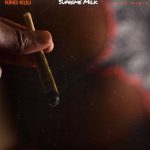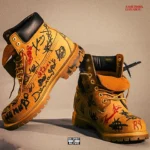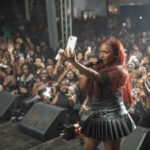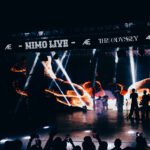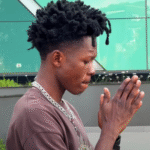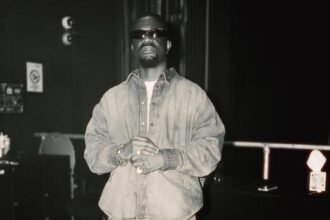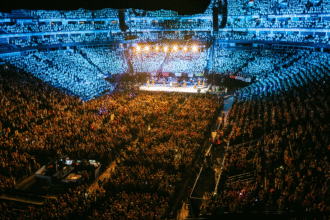What constitutes a good piece of creative work is contentious. In this contention comes different schools of thought who share varying opinions on any artistic expression, be it poetry, drama, film, portrait, novel or music. Compare it to ‘beauty’ which is always said to lie in the eye of the beholder; however in certain ‘beauties’, there tends to be universal beholders.
So when Ghanaian novelist Ayi Kwei Armah says the ‘beautyful’ ones are not yet born (though he had political tinge) it presupposes that creativity never dies.
And just like the paradox- heard melodies are sweet, those unheard are sweeter- the perpetual creative force behind man is expected to behold the eyes of people.
The creativity of rap artistes has always been in the news, and rappers themselves question the many ‘senseless’ rap lines churned out by their colleagues. This certainly arouses an age long debate about the right of the artiste to come up with what they consider good, from their perspective, and be less bothered about norms and conventions; after all it is their creativity.
Yes. That is what literary critics call artistic license. It is sometimes referred to as dramatic license, poetic license, narrative license, or just license, depending on the genre of creative work. The American Heritage Idioms Dictionary defines artistic license as the liberty taken by a writer or artist in deviating from conventional form or fact to achieve an effect. Some of these licenses may include omission of letters or words or unusual word order, weird contractions, or sometimes even making up words or expressions.
This form of deviation was prevalent in poetry, especially when poets were granted that privilege to enlighten society and achieve certain effects in the midst of having to achieve certain poetic forms such as meter and rhyme. Those days, poetic pieces that did not conform to the norms and conventions were considered less creative.
Music to a large extent is poetry, or is it vice versa? So if poets hide behind poetic license to ‘commit’ conventional blunders, or what they call creativity, why shouldn’t song writers? It appears critics are quick to jump onto music artistes when they slack artistically, but are somehow cautious when it comes to other genres. Are we morally and creatively justified to question the creativity of others when we don’t know what informs their creativity and the meanings they intend to hide or convey?
Sarkodie et al.
Sarkodie
I recollect an article I read about a grammarian who took T Pain on for what he considered inappropriate use of language in his song, “Buy you a Drink”. The contention was T Pain’s use of the word ‘drank’ instead of drink, stating ‘drank’ was used to simply rhyme with ‘bank’. The critic in question later wrote thus: “It turns out that my objection just showed my cultural ignorance. ‘Drank’ is a real thing: It’s both a slang term for a drug and the name of a soda.”
“Did Sarkodie goof at the 2012 BET Hip hop Awards Cypher?” I hope you remember the Irish cream stuff? I hope you recollect the uproar that characterised a line from his rap- “So many emcees back in Africa making a perfect meal, but I’m the missing ingredient; call me the Irish cream.” Of course Ghanaians felt Irish cream wasn’t an ingredient. What probably didn’t help was his attempt to explain himself.
What about the FOKN Bois’ “Thank God we are not a Nigerians” track? The song was controversial for the title as well as the content. A lot of people considered the title of the song inappropriate as it defied grammatical sense. But isn’t it creativity? Wasn’t the title meant to get the attention of people to listen to the song? The FOKN Bois are known for their controversy-in music and in deed.
Efya in the song “Little Things” written by Asem, also ‘crucifies’ grammar. In the popular refrain “…the little things that you do makes me love you more,” clearly violates the subject verb agreement rule, making ‘little things’ agree with ‘makes’ instead of ‘make’.
The gospel song “Tomorrow by this time” popularised by Jak Alolome has also been on the radar of some grammarians who believe that “Tomorrow by this time, God will make a way…” is grammatically wrong. They argue that the future perfect, “God will have made a way…” would have been ideal.
But should we worry our heads that much with the correct use of grammar in our songs? Those who believe this assertion content that music is very much an educative medium that people can learn from. It may be preposterous that anyone will want to polish their language from the songs they listen to, but it can be encouraged, if song writers gave good language a thought in their writings.
After all, a proverb that is not well executed in songs is frowned upon especially in the African setting. Legends and historical facts that are wrongly recounted in songs are questioned. Remember Nkasei’s “Tuobodom” and the brouhaha that came with it? These things happen because of the power that songs have- to educate, inform and also entertain.
So at what point should we accept the seemingly creative deviations from musicians. Could it be that some of the errors pointed out above are deliberate, or they were done in ignorance? For the FOKN Bois’ case, I can say for a fact that it was deliberate to bring about controversy.
They are satirical in their compositions, so it becomes easy to accept. In the case of Efya’s song, I don’t see how the use of ‘makes’ instead of ‘make’ renders the song creatively better. And using ‘make’ wouldn’t have made it any worse. I get the impression they just were not aware, as that error in English Language usage is that common.
Issues of the power of the artiste to create what they think can best tell their story, and the limitations that come with it, will always linger. It is a fact that musicians may not just put words together for collocation purposes, but there may be some rationale behind it which people may not have knowledge about.
But are critics wrong to point out those deviations, more so when the right forms do not affect the context of the songs that are churned out? Or we should just imbibe the saying that every mistake is a new style? Let’s get talking!
By Mic Yamoah







